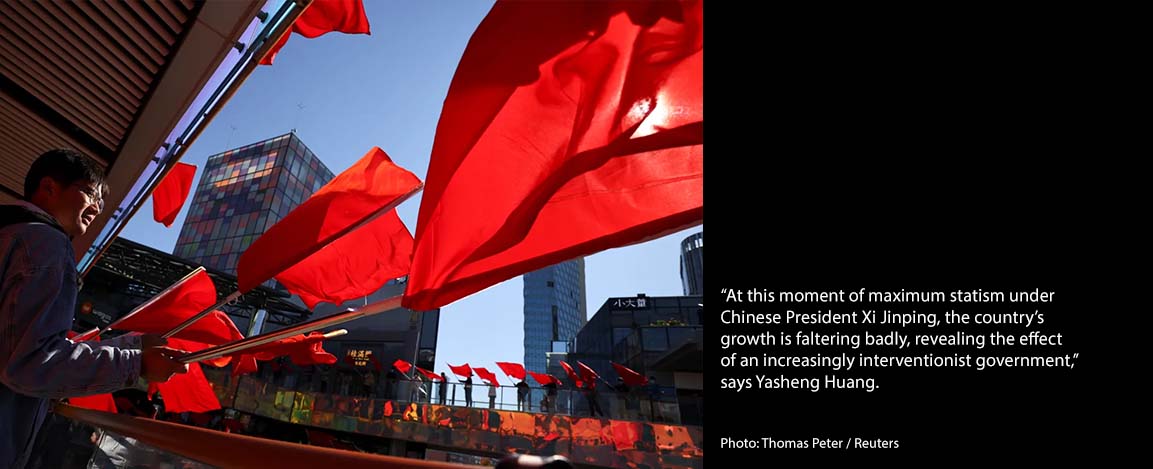Yasheng Huang, Epoch Foundation Professor of International Management and MIT-China Faculty Director, writes in Foreign Affairs that China's economic growth has slowed as a result of the negative externalities of state capitalism. "Economic statism is not the savior of the Chinese economy—it is an existential threat to it," he says.
As China’s economy steadily grew in recent decades, its advocates championed the country as an antithesis—and an antidote—to liberal economics and politics. This argument seemed credible as China grew rapidly under an autocratic and economically statist system. At the same time, the United States—that beacon of Western democracy—was suffering from economic and political sclerosis.
This contrast between the Chinese and US systems, and their disparate performances, led to questions regarding the effectiveness of the Western model of free markets and liberal democracy. Perhaps, as some observers have argued—including, most recently, the economist Keyu Jin—the Chinese economic miracle could be evidence of an alternative playbook to that which enabled the West’s success. China has risen, in this view, thanks to the power of statism and the wisdom of Confucianism craftily combined with the efficiency of the private sector. As China’s growth rate consistently averaged nine percent a year, the basic ingredients in standard economics came into doubt. Perhaps market finance, the rule of law, and property rights were unnecessary and, from the perspective of Chinese culture, undesirable and counterproductive contrivances.
These arguments have become less credible lately, as Chinese growth slows and capital flees in search of overseas havens. In August alone, capital outflows amounted to $49 billion. Chinese capitalists are leaving, too, fearful for their safety and the security of their property. At this moment of maximum statism under Chinese President Xi Jinping, the country’s growth is faltering badly, revealing the effect of an increasingly interventionist government. Contrary to the widespread view, China’s economic miracle happened because the government retreated from the commanding heights of central planning and left room for the market economy. Economic statism is not the savior of the Chinese economy—it is an existential threat to it.
Read the full article at Foreign Affairs.




